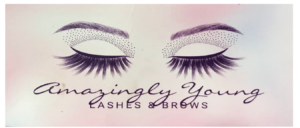Dealing With Eyebrow Hair Loss or Simple Every Day Beauty Treatments? What’s Causing My Eyebrow Hair Loss, and How Can I Treat It?
Much like the hair on your head, eyebrows can thin out or just stop growing. You may experience this for any number of reasons.
Eyebrow hair loss causes
If one or both eyebrows are thinning, it could be due to infection, skin conditions, hormonal changes, or an overactive immune system. Nutritional deficiencies, physical trauma, or emotional stress can also cause diminishing brows Trusted Source.
By narrowing down the cause, you and your doctor can find the right treatment to help prevent, reverse, or minimize hair loss.
Thyroid issues
Thyroid disease is a common cause of eyebrow hair loss. Your thyroid gland produces hormones that regulate metabolism.
When this gland produces too much or too little of a hormone, your body falls out of balance, disrupting a number of normal processes. This includes hair growth.
Hypothyroidism can also cause fatigue, weight gain, and brain fog, while people with hyperthyroidism often have heart palpitations, bulging eyes, and weight loss.
When you have too little thyroid hormone in your body, it can make you feel tired, you might gain weight and you may even be unable to tolerate cold temperatures. These two main disorders can be caused by a variety of conditions. They can also be passed down through families (inherited).
Early signs of thyroid problems include:
- Vision changes (occurs more often with hyperthyroidism) …
- Hair thinning or hair loss (hyperthyroidism)
- Memory problems (both hyperthyroidism and hypothyroidism)
- Gastrointestinal problems. …
- Mood changes. …
- Weight changes. …
- Skin problems. …
- Sensitivity to temperature changes. …
Alopecia areata
Alopecia areata is an autoimmune disease. The immune system mistakenly recognizes part of your own body as the enemy and attacks it. Alopecia areata targets the hair follicles from which individual hairs grow, slowing down or halting hair production.
There are several kinds of alopecia:
- Alopecia areata causes random spots of hair loss.
- Alopecia universalis is a total disappearance of all hair.
- Frontal fibrosing alopecia causes scarring of the scalp along with balding and eyebrow loss.
Stress and anxiety
Excessive stress and anxiety can cause physiological changes, including reduced oxygen to the hair follicles and fluctuating hormone levels. Trusted Source that contribute to eyebrow hair loss.
Persistent plucking or overuse of makeup products
Over-plucking your eyebrows creates minor trauma, and eventually the hair may stop growing in that spot. Harsh makeup may cause similar damage when used for extended periods.
Eyebrow hair-loss treatment
Doctors are not sure what triggers an episode, but it can come and go, with hair growing back when the disease is inactive, according to the National Alopecia Areata Foundation. Alopecia can also affect fingernails and toenails.
Nutrient deficiencies
The human body requires nutrients, including energy sources (carbohydrates, proteins, fats), amino and fatty acids, vitamins, and minerals. Some of these sustain and influence hair growth, so a deficiency in any one of them could cause hair loss.
A lack of vitamin A or zinc can slow cellular growth and hinder the production Trusted Source of moisturizing sebum (oil). Other more specific deficiencies that can affect hair loss include:
- biotin Trusted Source (vitamin B-7)
- vitamin C (collagen development)
- iron
- vitamins E, B-12, and D
- cysteine
- omega-3 fatty acids
Once you and your doctor determine the cause of your eyebrow hair loss, you can choose the most appropriate treatment.
- Minoxidil (Rogaine) is an over-the-counter (OTC), hormone-mediating, topical medication that is available in versions for men and women. It can restore Trusted Source hormonally stunted growth over the course of several months.
- Corticosteroids in either topical, injectable, or pill form can be used to treat alopecia areata, eczema, dermatitis, or psoriasis by reducing inflammation and immune response.
- Topical, contact-sensitizing chemicals may be effective for eyebrow hair loss by eliciting an allergic response that prompts hair growth. These chemicals typically have a rash-inducing side effect.
- Acupuncture may work to relieve alopecia areata, possibly by reducing attacks on the hair follicle bulb, stimulating circulation.
- Castor oil is a long-time home remedy for hair growth. It may stimulate the hair follicles by acting on certain hormones.
- Commonly used to treat psoriasis, anthralin is an anti-inflammatory and a natural derivative of anthraquinone. It’s often prescribed to those with eyebrow hair loss caused by an inflammatory process.
- Nutritional supplementation with antioxidants, omega-3 fatty acids, and omega-6 fatty acids is effective against hair loss in women and likely in men as well.
- For cases caused by hormone disruptions, an endocrinologist may prescribe prescription medications like thyroid stimulating hormone, estrogen, or testosterone.
- Eyebrow transplant restoration is similar to scalp hair replacement. It involves removing a section of skin from a location with ample hair and transplanting hair follicles to the sparse eyebrow area.
- Bimatoprost (Latisse ) treats TE and possibly other forms of eyebrow loss by extending hair growth cycles so hairs have time to grow longer. It may help eyelash growth, but studies suggest it is also effective for eyebrows Trusted Source, though not yet approved by the U.S. Food and Drug Administration (FDA) for that purpose.
Eyebrow hair-loss prevention
It’s sometimes possible to prevent the eyebrow hair loss before it begins. Speak to your doctor about getting blood work to determine whether you have any deficiencies to address.
Eat plenty of lean protein, fruits, and vegetables. Find ways to relax and reduce stress, such as massage or meditation.
Resist the urge to over-pluck your eyebrows or use harsh chemicals near them. Protect your brows with a dab of Vaseline if you need to use hair bleach or dye, tretinoin (Retin-A), hydroquinone, or glycolic acids.
When to see a doctor
If you start experiencing eyebrow hair loss, you should see your doctor to determine the cause. They’ll be able to pinpoint any other symptoms and order the right tests to diagnose the underlying condition. After that, they can get you started on the right treatment plan.
You can connect to a physician in your area using the Healthline Find Care tool.
The takeaway
Eyebrow hair loss can have any number of causes, including endocrinological, autoimmune, or caused by trauma. Treatment options range from medications and creams to alternative therapies and cosmetic procedures.
- Some people simply choose to hide their eyebrow hair loss with permanent makeup or microblading (semi-permanent tattoos).
So, if you are experiencing eyebrow hair loss? Make an appointment with your physician for a medical examination, and then contact a beauty consultant? For alternative treatments like microblading Amazingly Young is a lash brow and makeup studio where she specialize in Micro-Blading, Powder Brows, Hybrid Brows. She also specialize in Classic Individual Faux Lashes and Beautiful Make Overs.
Danyell will transform you from Average to Amazing in just moments.
Contact Danyell for an appointment at phone number: 770-625-1443 or visit
https://www.amazinglyyoungbeauty.com
285 South Glynn Street Fayetteville, GA 30214
https://www.instagram.com/amazinglyyoungbeauty1/
http://twitter.com/amazinglyyoung1
https://www.facebook.com/pg/Amazingly-Young-Beauty-102187018880150/photos/
© 2005-2022 Healthline Media a Red Ventures Company. All rights reserved. Our website services, content, and products are for informational purposes only. Healthline Media does not provide medical advice, diagnosis, or treatment.
Researched and written by Paula Perry





